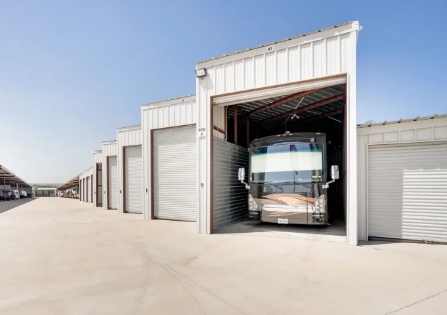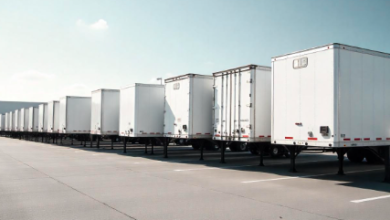CONSIDERATIONS FOR CHOOSING A TRAILER STORAGE FACILITY

Locating the appropriate location to leave your trailer provides convenience and peace of mind. Maybe you are storing your trailer away for a season, or you simply need more room in your home. Selecting the right trailer storage will ensure that your trailer is safe. Here is what you should consider before giving out your keys.
Security
Security must be at the top of your list because your trailer is an investment. Search for trailer storage facilities that have amenities such as:
- Gated access
- Surveillance cameras
- Lighting.
Some places have keypad entry or on-site personnel, which provides another safety measure.
Do not hesitate to ask questions: Do they have late-night security checks? A properly managed establishment will be delighted to tell you how they secure the property of their customers.
Location and accessibility
The place should be convenient, especially when you have to take your trailer out regularly. Assess the ease of access to the location with your trailer. Also, consider the distance you have to travel back.
Inspect the road to the facility. Is it broad and in good condition? What of turning space when there? Certain facilities have narrow corridors or driveways that may pose a challenge to manoeuvre. Convenience now is a time-saving factor.
Storage type
Storage facilities are typically available in three types: indoor, covered, and outdoor.
- Indoor storage is the most weather and sun-protected. But it is also the most costly.
- Covered storage offers a decent compromise. It protects your trailer against the weather and UV rays. It is also reasonably priced.
- Outdoor storage is the cheapest. However, it is only convenient when a trailer is designed to withstand the weather.
You will have to make the right decision based on your:
- Budget
- The value of the trailer
- The frequency of your usage.
Ground surface and drainage
A proper storage lot must be of hard, flat ground. It could be gravel, asphalt, or concrete, so that your trailer does not sink in or have flat spots. Drainage is also very essential. Standing water may result in:
- Rust
- Tire bursts
- Structural problems in the long run.
You can visit the site after a rainstorm to check the exposure to water.
Access hours and policies
There are those with 24/7 access and those with designated hours of access. Consider your schedule.
Do you have to pick up your trailer in the morning? Late at night? Perhaps on weekends? The flexibility factor can be very important in case you travel frequently or have unforeseeable arrangements.
Also, verify the regulations regarding on-site maintenance or cleaning. Certain places do not permit repairs and washing in the facility, and this may have an impact on your plans.
Reputation and reviews
Finally, do a little research. Reviews posted online can give a picture of how a facility:
- Treats its customers
- Addresses problems
- Manages its property.
Search for statements of cleanliness, safety, and helpful employees. Do a quick tour, hopefully, and make a decision. You will know how clean and safe the place is going to be, and that gut feeling can tell a lot.





